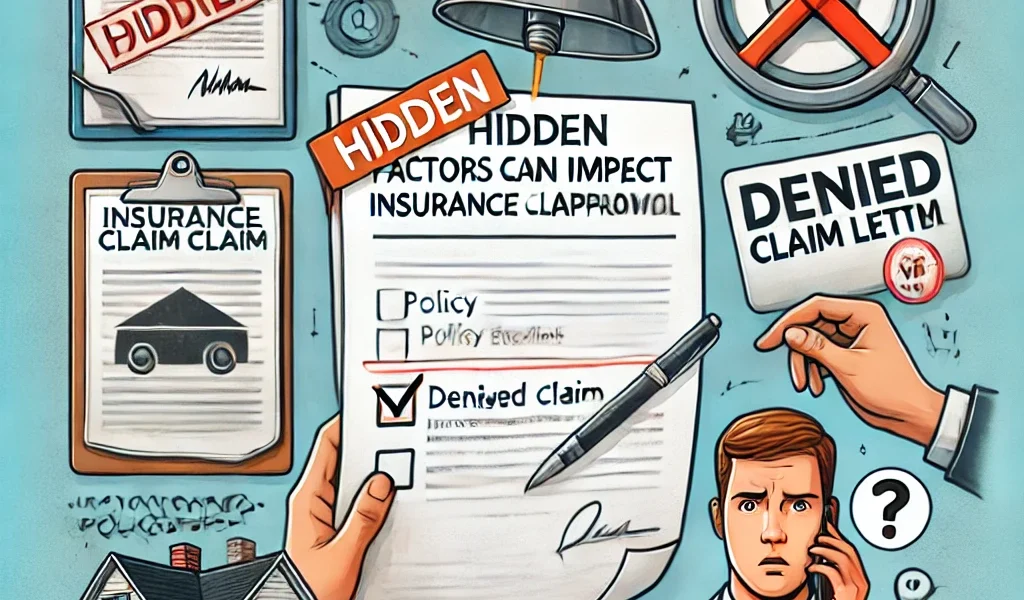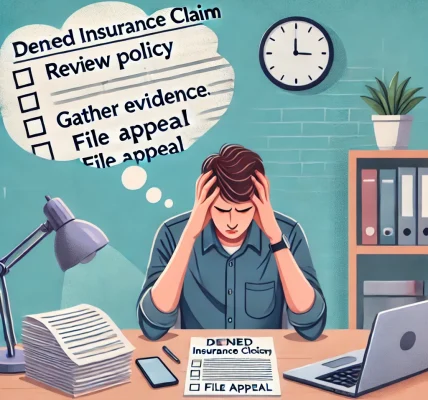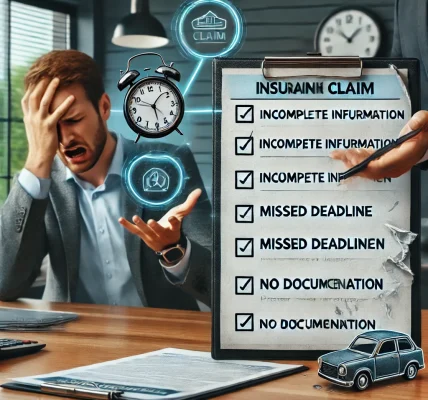Filing an insurance claim can be a stressful experience, especially if you’re counting on a smooth approval process to recover your financial losses. However, many policyholders are unaware of hidden factors that can significantly impact the outcome of their claims. These overlooked details can lead to delays, reduced settlements, or even outright denials.
In this DIY guide, we’ll uncover the hidden factors that can affect your insurance claim approval and provide actionable steps to help you navigate the process effectively.
1. Understanding the Insurance Claim Process
Before diving into the hidden factors, it’s important to understand the basic process of filing an insurance claim:
- Incident Occurs – An accident, loss, or damage takes place.
- Documentation – You gather evidence, including photos, receipts, and reports.
- Filing the Claim – Submit a formal claim with your insurance provider.
- Investigation & Evaluation – The insurance company reviews your claim, may send an adjuster, and verifies details.
- Claim Decision – The insurer either approves, partially approves, or denies the claim.
- Payout or Appeal – If approved, you receive compensation; if denied, you may appeal.
Now, let’s look at the hidden factors that could unexpectedly affect your claim.
2. Hidden Factors That Affect Insurance Claim Approval
1. Incomplete or Inaccurate Documentation
Proper documentation is the backbone of a successful claim. Failing to provide complete and accurate details can delay processing or lead to rejection.
What to Do:
- Always take high-quality photos of the damage or loss.
- Maintain receipts, invoices, and warranties for expensive items.
- Get a police report if applicable.
- Be consistent with details in forms and verbal statements.
2. Policy Exclusions & Limitations
Many policyholders don’t fully read their policy, leading to surprises when claims are denied due to exclusions or limitations.
What to Do:
- Review your policy carefully and highlight exclusions.
- Understand coverage limits and deductibles.
- If necessary, consult an insurance expert before filing a claim.
3. Delayed Claim Filing
Waiting too long to file a claim can raise red flags with the insurer and may result in denial.
What to Do:
- File your claim as soon as possible after the incident.
- Check your policy for claim filing deadlines.
- If unable to file immediately, notify your insurer in writing.
4. Pre-existing Damage
Insurers often investigate whether the damage was pre-existing or caused by a previously known issue.
What to Do:
- Conduct regular inspections of your insured property.
- Maintain maintenance records for homes, vehicles, and equipment.
- Report damages immediately instead of waiting.
5. Suspicious or Contradictory Statements
If your claim statements contradict each other or previous records, insurers may suspect fraud and reject your claim.
What to Do:
- Be honest and consistent when describing the incident.
- Avoid exaggerating damages or losses.
- Keep copies of all documents submitted.
6. Lack of Proof of Ownership
If you cannot prove ownership of the lost or damaged item, your claim may be denied or undervalued.
What to Do:
- Keep original purchase receipts and store copies digitally.
- Take photos of expensive belongings regularly.
- Use an inventory tracking app to list valuable assets.
7. Unreported Changes to Your Policy Details
Any changes in your property, car, or health status that were not updated with the insurer can lead to claim denial.
What to Do:
- Inform your insurer about home renovations, car modifications, or medical conditions that affect your policy.
- Regularly review your policy for necessary updates.
8. Not Cooperating with the Insurance Adjuster
Insurance adjusters assess claims and may deny or reduce payouts if they don’t receive full cooperation.
What to Do:
- Provide all requested documents promptly.
- Be available for inspections or follow-ups.
- Ask questions to understand their evaluation.
9. Fraud Red Flags & Misrepresentation
Even minor exaggerations can lead to claim denial if the insurer detects fraud.
What to Do:
- Never inflate repair costs or claim damages that didn’t happen.
- Stick to factual details in all documents and conversations.
- Report any potential errors in your claim submission.
10. Third-Party Involvement & Legal Issues
If legal disputes, multiple claimants, or third-party liabilities are involved, your claim might face delays or complications.
What to Do:
- Keep detailed records of any legal proceedings related to your claim.
- Seek legal advice if third-party claims are involved.
- Avoid signing settlement agreements without understanding the full implications.
3. Steps to Improve Your Claim Approval Chances
- Be Proactive: Keep records of all valuable assets before a loss occurs.
- Stay Organized: Maintain a digital and physical file of all documents.
- Communicate Clearly: Respond to insurer queries promptly.
- Understand Your Policy: Be aware of your coverage and limitations.
- Seek Professional Advice: Consult an insurance agent or attorney for complex claims.
4. What to Do If Your Claim is Denied?
If your claim is denied, don’t panic. Follow these steps:
- Review the Denial Letter: Understand why your claim was rejected.
- Gather Additional Evidence: Provide more documentation if needed.
- Request a Re-evaluation: Contact your insurer and discuss concerns.
- File an Appeal: Submit a formal appeal with supporting documents.
- Seek Legal Help: If necessary, consult an insurance dispute attorney.
Conclusion
Understanding the hidden factors that can impact your insurance claim approval can help you navigate the process smoothly and avoid common pitfalls. By staying proactive, maintaining accurate documentation, and following best practices, you can improve your chances of receiving fair compensation without unnecessary delays or denials.
Always read your policy carefully, file claims promptly, and provide complete information to your insurer. If you face any challenges, don’t hesitate to seek expert advice to protect your rights and maximize your insurance benefits.




